Robert Bentley to be investigated by state ethics commission
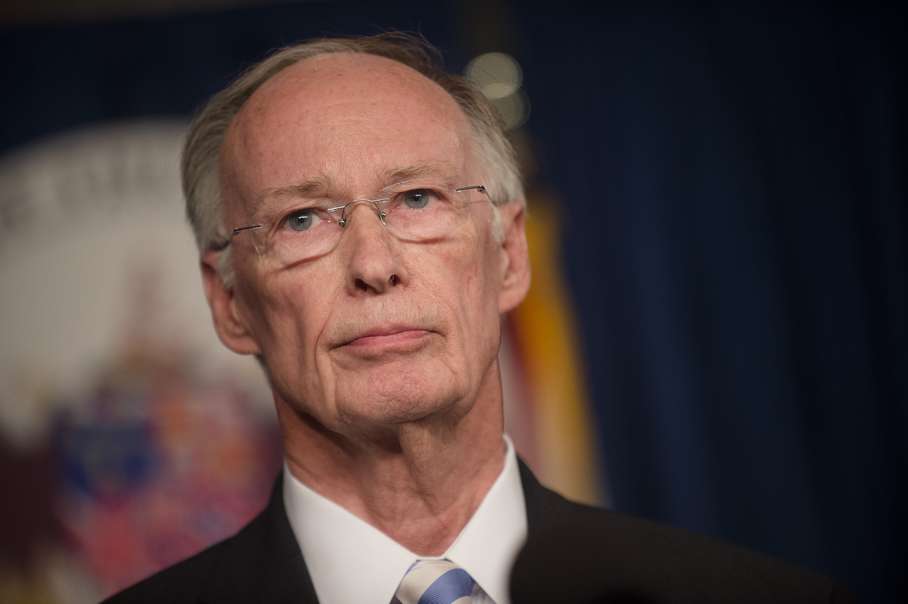
On Tuesday, the Alabama Ethics Commission responded to a complaint filed by State Auditor Jim Zeigler in reference to an alleged affair between Gov. Robert Bentley and staff member Rebekah Mason. Ethics Commission attorney Hugh Evans informed Zeigler that case numbers have been assigned to the complaint and special agents will be assigned to investigate soon. Evans also instructed Zeigler not to discuss the ongoing investigation “in order to maintain the integrity of the investigation.” However, Zeigler has still been encouraged to pass on any additional evidence he may come across. The complaint was lodged after sexually explicit audio recordings of Bentley surfaced, though he and Mason both have contended that there was no physical affair between them. Zeigler contends that Bentley may have misused his office if in fact it was used for an affair – in one of the recordings, Bentley mentions having to rearrange his office. While it is unclear when the ethics commission will complete its investigation, if Bentley is found to have misused his office for salacious encounters he may well be eligible for impeachment on the grounds that such a misuse would constitute an “offense involving moral turpitude while in office.”
Barack Obama’s executive actions challenged by multi-state coalition
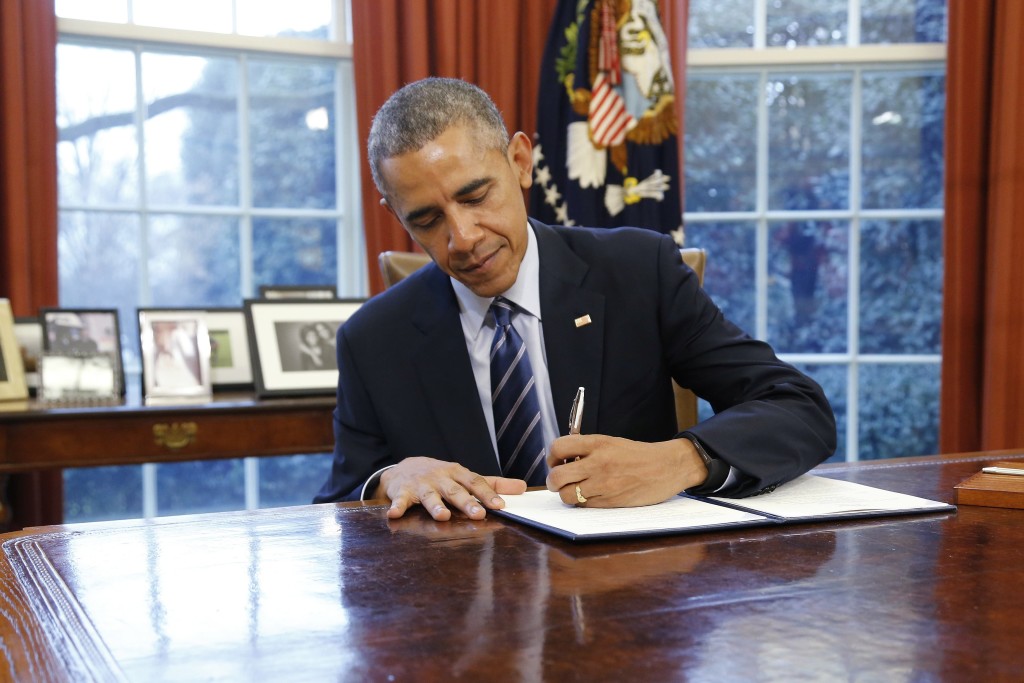
On Monday, Alabama Attorney General Luther Strange announced that the state has joined 26 others in filing a merits brief with the U.S. Supreme Court opposing executive actions by President Barack Obama. The statement claims Obama’s actions will grant amnesty to four million illegal immigrants. The other states involved in the lawsuit include Texas, Arizona, Arkansas, Florida, Georgia, Idaho, Indiana, Kansas, Louisiana, Maine, Michigan, Mississippi, Montana, Nebraska, Nevada, North Carolina, North Dakota, Ohio, Oklahoma, South Carolina, South Dakota, Tennessee, Utah, West Virginia and Wisconsin. The brief contends that the administration’s Deferred Action for Parents of Americans and Lawful Permanent Residents (DAPA) is “unconstitutional and defies states’ rights.” The law allows illegal immigrants, who have lived in the country since 2010 and have children who are American citizens or lawful permanent residents, to apply for a renewable, three year work permit and avoid deportation. Texas has not only noted the unconstitutionality of the law, but has added that the added burden and expense of issuing driver’s license to undocumented immigrants. Further, a Texas court ruled that the new law violates the tenets of the Immigration and Nationality Act of 1952. According to a 2015 study by the Migration Policy Institute, about 3.6 million undocumented immigrants would be eligible for DAPA. The report further notes that “more than 10 million people live in households with at least one potentially DAPA-eligible adult, including some 4.3 million children under age 18 – an estimated 85 percent of whom are U.S. citizens.” “The president’s immigration order is an outright attempt to sidestep the power of Congress which had earlier refused to pass blanket amnesty for millions of illegal aliens,” Strange said in the statement. “This president has demonstrated over and over the will to circumvent Congress and the limits on his own constitutional authority in order to achieve a political goal.” The Supreme Court is set to hear oral arguments over the law, which has been delayed until all legal proceedings are completed, on April 18.
Local roundup: Confederate jacket sparks dispute, Paul Ryan to fundraise in B’ham, Mobile debates Gulf Coast gas tanks

It wasn’t long ago when Confederate iconography was generating statewide headlines amid a dispute between Gov. Robert Bentley, who supported downplaying the state’s secessionist history, and his critics who said he was “deceptively” revising Alabama’s history. This week, a rebel soldier’s jacket has stirred controversy of a different kind. A Huntsville collector, Joe Fitzgerald, who purchased an 1860s-era CSA jacket worn during the Civil War is now fighting for his right to keep the jacket, in the face of charges the relic was stolen from a New Orleans museum. Fitzgerald says the Confederate Memorial Hall Museum – who claims the jacket was lifted from them during the 1980s – has never proven the antique actually belong to its purported owner, Confederate Army Capt. William Lyman, and so cannot claim for certain the missing jacket is the same as the one he owns. Fitzgerald bought the coat in 2009 at a civil war history convention. Representatives of the aggrieved museum appraise its value at $75,000. The two parties are fighting out the dispute in Madison County Circuit Court. MARATHON MOBILE CITY COUNCIL MEETING SETS UP MOMENTOUS VOTE ON GAS TANK FARMS ALONG COAST After an hours-long public comment period at a Mobile City Council hearing on whether or not to enshrine petrochemical farming along the ecologically-sensitive Gulf Coast, the real work of regulating the operations is just getting started. Environmental activists and industry advocates sparred well through what normally would have been a lunchtime recess, trading barbs over economic development and the preservation of the port. Casi Callaway, executive director of Mobile Baykeeper, said she hoped to speak in favor of a compromise, but said a clause to exempt existing operations from the proposed regulations was a non-starter. Speakers like Mobile Chamber VP Troy Wayman said environmental concerns are exaggerated, even ginned up by billionaire environmentalists like George Soros. A vote could come as soon as this week, bout council members and council Attorney Jim Rossler indicated possible tweaks would push a final vote until at least April or longer. MONTGOMERY HAPPENINGS Montgomery cancelled municipal elections planned for May after no one ran to oppose a handful of incumbent officials during a March 8 meeting of the City Council. The Mayor’s office and Council seats 6 and 7 were all up for election, but no challengers emerged The cancellation means incumbent Mayor Kirk Jones and Council Members John Champagne Jr. and Rebecca Huss will remain safely on the council until 2018. • • • An officer with the Montgomery Police Department resigned on Tuesday after being arrested and charged with leaving the scene of a traffic accident while off-duty, a felony. 22-year-old G.T. Farris reportedly left a two-car accident involving him and another driver at 3 a.m. Tuesday morning. Farris was detained in a Montgomery County jail and held under a $15,000 bond. The department received and accepted his resignation after beginning the process of terminating him unilaterally. PAUL RYAN IN ALABAMA Speaker Paul Ryan will be in Birmingham on Wednesday to raise money to help grow the Republican majority in the House. U.S. Reps. Robert Aderholt and Mike Rogers will be on hand as Ryan stumps for campaign cash to benefit the National Republican Congressional Committee. TRUSSVILLE SUPERINTENDENT SAYS ‘NO THANKS’ TO PAY INCREASE Dr. Pattie Neill signed on for four more years as head of Trussville Schools, but said no to the customary raise that usually entails. Her reason? Under state law, teachers with more than 28 years of experience are capped on their salaries. Neill, a former teacher, says it wouldn’t be right to take a raise until the state of Alabama acts to lift that restriction. “I have more than 28 years of experience and I consider myself just like they are,” Neill said. “I think it’s important to honor those people who are still in the work, and the work is every day and it starts over every year and I think the state needs to be appreciative of that.” Under her just-renewed contract, Neill makes $176,000 annually. STATE HEALTH OFFICIALS: PARTS OF MOBILE BAY OK’D FOR OYSTER HARVESTING Officials with the Department of Public Health have given the green light for reopening two areas of the Mobile Bay for oyster harvesting, following possible bacterial contamination stemming from heavy rainfall in late February. Two parts of the Bay, including Heron Bay, are now deemed safe for oystermen and the public.
Alabama College Republicans unanimously call on Robert Bentley to resign
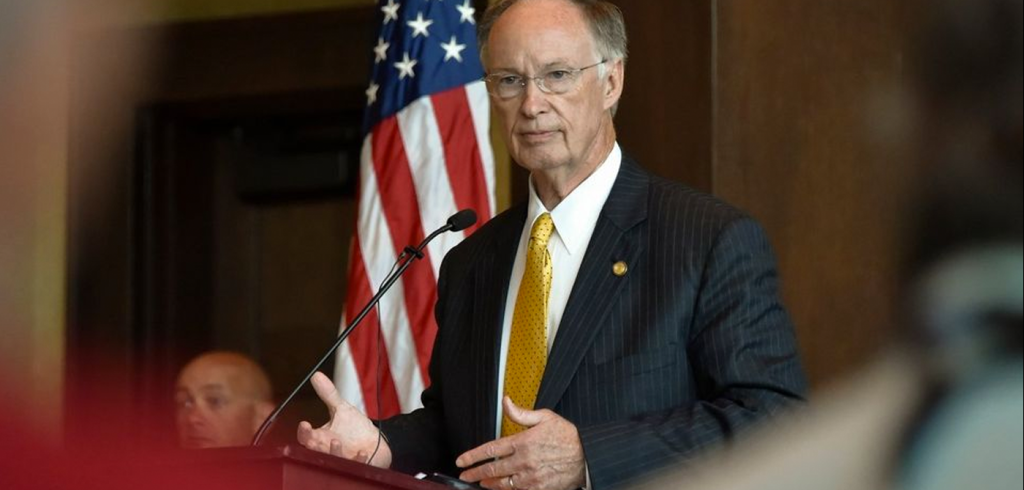
The College Republican Federation of Alabama (CRFA), consisting of 17 member chapters across the state’s colleges and universities, unanimously called for Gov. Robert Bentley to resign in light of the multiple recordings alleging an affair between the second-term governor and his longtime aide Rebekah Caldwell Mason. “Whereas Governor Bentley has brought shame and embarrassment to the State of Alabama by means of local, state, and national news, as well as social media through his own self-admitted devious, immoral, and possibly illegal actions involving his married female senior top aide, not only of the sexual nature, but regarding her compensation as well as a non-state employee yet making key decisions in the governing of the state, coupled with the very questionable firings at the ALEA, all of which will likely hinder future trust in the state government of Alabama, the Republican Party, and all its branches…” Though far from the first to call on Bentley to step down, CRFA’s resolution is the first Republican group to call decisively for the action. There are 24 members of the CRFA executive board, made up of the chairmen of each chapter, plus seven constitutional officers. CRFA State Chairman Cole Lawson says the members of the board met via a conference call Monday evening, and the resolution was considered as new business during a regularly scheduled meeting. “There wasn’t much discussion on it,” Lawson told Alabama Today. “It was voted on with less than two minutes of discussion. There was no fight or anything, there was no dissent. It was a unanimous resolution. I think that probably explains how we and our constituents at Alabama’s colleges feel about the situation.” Lawson said he hopes CRFA’s action will be a catalyst for other Republican groups to act, but came short of calling on them to do so. “The College Republican Federation of Alabama is just not willing to sit by and take a ‘seat behind’ position on this,” he said. “We all feel that the governor has certainly done a disservice to not only the state, but the Republican party, that by extension we are a branch of, and it’s this sort of thing in elected officials where we can go out and talk about how the Republican party is the party of morality, trust, and integrity, but then we have the governor of our own state right here on our home turf turning that upside own on its head, that’s just unacceptable to us.” “We encourage him to trade in his Republican card for a Democrat card if that’s how he’s going to act,” he said. While a request for comment from the Alabama GOP was not immediately returned, Chairman Terry Lathan said in a statement last week the organization is “very disappointed in the news that unfolded this week concerning Governor Bentley’s personal conduct. The public expects our elected officials to act in an honorable manner. Governor Bentley’s apology to our state was the minimum action needed to begin a healing process for us all.It is up to him now to earn back our trust, not in words but in actions.” “While we do not know if this storyline is finished,” she continued, “we do know that Alabama deserves the best from all who volunteer in public service, take an oath of office and ask for our support. Nothing less will be acceptable.” With Bentley maintaining he has no intention of stepping down, and no statewide recall mechanism currently in place, short of a felony conviction, it would remain in the hands of the Alabama State Legislature to remove the governor from office.
Alabama business round up: Headlines from across state – 3/29/16 edition

Who’s helping connect early startups with angel investors? What company is joining the Mobile Aeroplex to support Airbus? Who’s pledging $500k to a UAB football building? Answers to all of these questions and more in today’s business roundup: Birmingham Business Journal: ZipCar coming to Alabama The City of Huntsville is set to welcome the popular car sharing service ZipCar this week. Huntsville Mayor Tommy Battle is scheduled to join ZipCar executives and other local officials Tuesday to welcome the company. In February, the city approved ordinances allowing services like Uber, Lyft and Zipcar to start offering rides within Huntsville city limits. Uber began operating in Huntsville on March 4. Zipcar, a subsidiary of Avis Budget Group, offers monthly membership plans allowing consumers to drive cars billable by the day or hour. The company has more than 500 urban locations worldwide. AL.com: Gulf Shores to extend Spring Break booze ban beyond this year Gulf Shores Mayor Robert Craft “has no second thoughts” about a beach alcohol ban hastily imposed 11 days ago amid soaring arrests during Spring Break 2016, which was fast getting out of control. Craft and Police Chief Ed Delmore, following Monday’s City Council meeting, both said they support a similar spring-break-only ban of booze on the beaches next year. This year’s ban ends on April 17. “I know this was the right thing for this community,” Craft told AL.com. “Next year, we’ll do the same thing and we’ll continue to do this. We had too many issues with it not to do it on the front end.” Added Delmore: “Everyone needs to know this was a group decision and it’s nothing that none of us are looking back on.” Delmore said the situation on the beach is much more “manageable,” although police have made further arrests. According to Delmore, there had been 461 arrests since March 5, a majority attributed to underage possession of alcohol. This month, the Gulf Shores Police Department has received 3,100 calls for service. The key trouble spot was March 12-18, when police logged 288 criminal charges. Nearly 60 percent were for underage drinking. Last week, when days were damper and cool, and fewer spring breakers came out to the beaches, police filed 129 charges. Of those, 44 were related to underage drinking. Delmore and Craft credited the City Council’s March 18 decision to immediately ban alcohol on the beaches for the decline. The ban came as angry locals were taking to social media to document unruly beach crowds and trashy parties. Craft, himself, witnessed one of the gatherings outside the San Carlos condominium. “You couldn’t see the water and neither could our paramedics or beach attendants. It was a mass of people,” he said. “There was a climate in there for conditions that we were not willing to have happen on our beach.” ‘Manageable’ situation Very little was said about the alcohol ban during Monday’s council meeting. Only Delmore spoke about it as he thanked the council for moving ahead with the ban. “We are still making numerous arrests every day but not nearly at the level we were being forced to prior to that ordinance,” Delmore said. Last year, Panama City Beach, Fla., implemented a spring break booze ban after wild parties sullied that city’s image. This year, reports indicate that the ban drove spring breakers away, to Gulf Shores and elsewhere. This week, national media have described a throbbing spring break scene at Daytona Beach, Fla., where arrests have soared by 327 percent. Very few colleges or universities are on spring break after the end of this week. The Gulf Shores ban ends on April 17. Baldwin County Public Schools are on break this week, with Mobile County Public Schools taking its break April 11-15. The University of Missouri is out this week, but classes have resumed at the University of Alabama, Auburn University, Texas A&M University, University of Texas, the University of Tennessee, Louisiana State University and the University of Arkansas. Read more here. Alabama News Center: Logistics giant Miller Transfer joins Mobile Aeroplex to support Airbus On the day the latest batch of major component assemblies made the trek from the Port of Mobile to Airbus’ U.S. Manufacturing Facility, the Mobile Airport Authority inked its latest tenant agreement with a service provider integral to the operation. The office, which currently employs one person, is responsible for the logistics of physically moving the major component assemblies required by Airbus to assemble A320-family aircraft at its $600 million campus, also located at Brookley. The facility is slated to deliver its first Mobile-assembled A321 to JetBlue soon and reach production of four aircraft per month before the close of 2017, and as many as eight per month in the years following.Pennsylvania-based Miller Transfer will operate out of the second floor of the authority’s Ninth Street headquarters, known as Building 11, at Mobile Aeroplex at Brookley. “We believe that (Miller Transfer’s) decision to join us at the Aeroplex is another byproduct of our commitment to a well-thought-out and deliberate aerospace incubator strategy and adds just one more world-class capability set to the Aeroplex and Mobile,” said Roger Wehner, the airport authority’s executive director. Thursday’s announcement comes less than one week after Germany-based aircraft seat manufacturer Recaro confirmed plans to occupy renovated space on the second floor of the former fire station in the heart of the former U.S. Air Force base, now home to a thriving aviation and aerospace cluster.The airbus incubator strategy offers low-cost, flexible solutions to attract suppliers to Mobile during Airbus’ initial low rate of production. Wehner called the logistics announcement a “big piece” of the broader Airbus and Brookley strategies. Praising Miller Transfer as a “great company,” he said the firm expects to employ as many as five in its large 9th Street office, while also operating a small truck yard and potentially taking advantage of exterior storage options. “Miller Transfer provides world-class, specialized logistics solutions that could serve many large, high-value applications well,” Wehner said. Founded in 1968, Miller Transfer was
Donald Trump campaign: manager “absolutely innocent” of assaulting reporter

The Donald Trump campaign issued a swift response to the criminal charges which came down on campaign manager Corey Lewandowski on Monday, saying he is “absolutely innocent” of misdemeanor battery. Police allege Lewandowski grabbed former Breitbart reporter Michelle Fields at a press conference in Florida earlier this month after Fields attempted to ask Trump a question. According to first-hand accounts of the incident, Fields was “clearly roughed up” and fell to the ground after Lewandowski grabbed her by the arm. “Mr. Lewandowski was issued a Notice to Appear and given a court date. He was not arrested. Mr. Lewandowski is absolutely innocent of this charge,” read the Trump campaign’s statement. “He will enter a plea of not guilty and looks forward to his day in court. He is completely confident that he will be exonerated.” The campaign added Lewandowski is represented in the case by attorneys Scott Richardson of the law office of Scott N. Richardson, P.A. in West Palm Beach, and Kendall Coffey of Coffey Burlington in Miami, and that all inquires regarding the suit should be directed to counsel. Lewandowski turned himself in to police early Tuesday morning. Fields quit her post at Breitbart, a conservative online publication, citing a lack of support from the site’s leadership amid her ordeal.
Police charge Donald Trump campaign manager with battery
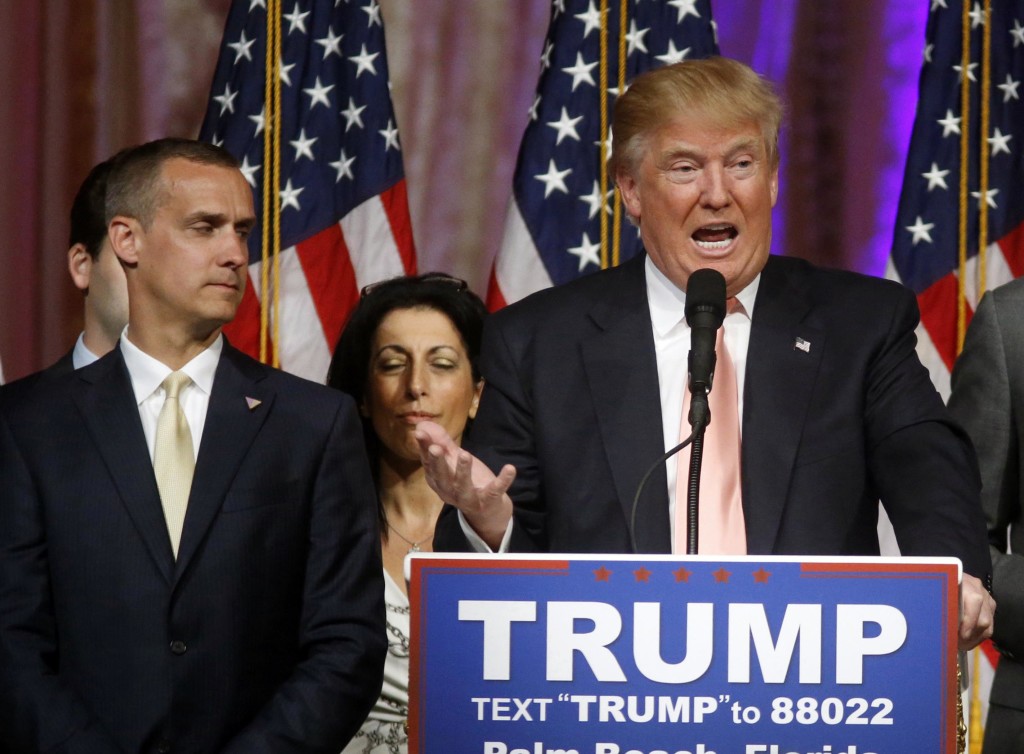
Florida police have charged Donald Trump‘s campaign manager Corey Lewandowski with simple battery in connection with an incident earlier in the month involving a reporter. Police in Jupiter, Florida, issued Lewandowski a notice Tuesday to appear before a judge on May 4 for the misdemeanor charge. A surveillance video released by the police appears to show Lewandowski grabbing a reporter for Breitbart News as she tried to ask Trump a question during a March 8 campaign event. The Trump campaign said Lewandowski “is absolutely innocent of this charge” in a statement released late Tuesday morning. “He will enter a plea of not guilty and looks forward to his day in court,” said the statement. “He is completely confident that he will be exonerated.” A police report obtained by The Associated Press includes an interview with the reporter, Michelle Fields, who worked for Breitbart News at the time. “Lewandowski grabbed Fields’ left arm with his right hand causing her to turn and step back,” reads the report. Fields showed police her left forearm which “appeared to show a grabbing-type injury,” according to the investigating officer. Republished with permission of the Associated Press.
Martin Dyckman: Politics mars the Supreme Court nomination process
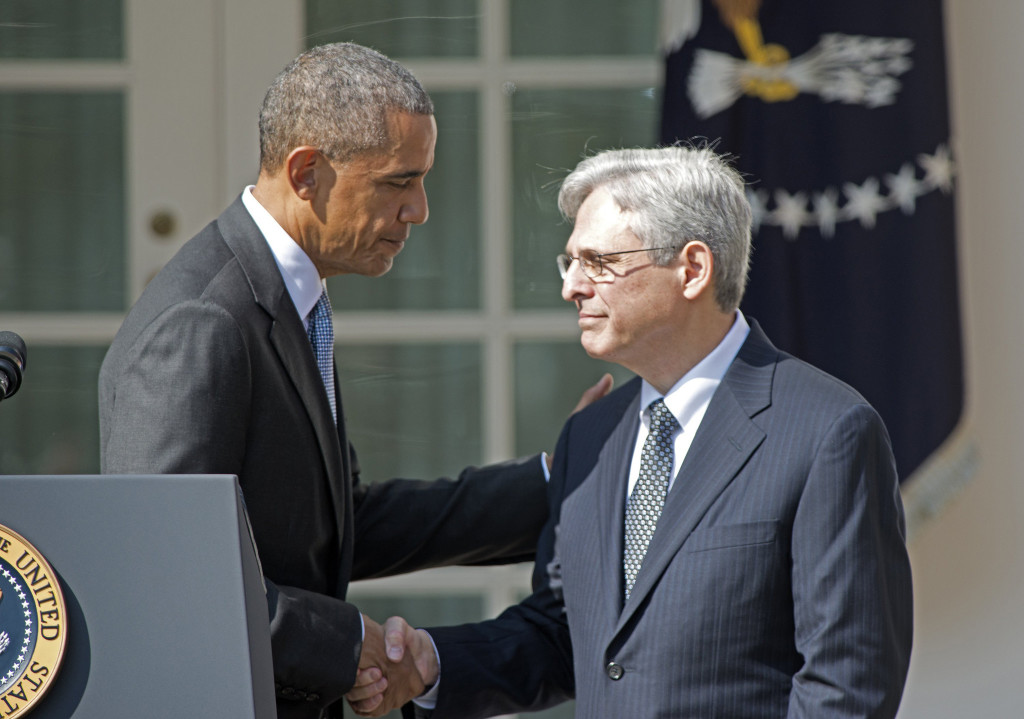
The maxim that “no good deed goes unpunished” is often borne out in politics these days, and if President Barack Obama hasn’t taped it to his shaving mirror, he should. In Merrick Garland, he found an ideal Supreme Court candidate, one whom, were the present roles reversed, a Republican president might have nominated and a Democratic Senate would have been obliged to confirm. His credentials are impeccable: Ivy League degrees. Clerkships at a Court of Appeals and at the Supreme Court. Antitrust practice in one of Washington’s blue ribbon firms. Distinguished service in the Justice Department, where he supervised the investigations and prosecutions of the Kansas City, Unabomber and Atlanta Olympics bombings. A centrist record in nearly 20 years as a judge of the Court of Appeals for the District of Columbia Circuit, where he is now the chief judge, and where he befriended John Roberts, the current chief justice of the United States. Garland is known as a diligent scholar who respects Supreme Court precedents, strives for consensus, and writes opinions that are “models of judicial craftsmanship,” according to Adam Liptak of the New York Times. Seven still-serving Republican senators supported Garland’s confirmation to the Circuit Court in 1997. Among them is Orrin Hatch of Utah, who was quoted in 2010 as saying Garland would have made a “consensus nominee” for the Supreme Court and dropped his name after Antonin Scalia died. Now, the oleaginous Hatch is saying “Let the voters decide,” as if they didn’t already do that when they re-elected Obama. At 63, Garland is a decade older than the usual Supreme Court nominee. The not-so-subtle message to the Senate majority is that a future Republican president might be able to fill the seat sooner than any Democrat might anticipate replacing Roberts. Despite all that, Senate Republicans are still refusing a hearing on the nomination and most aren’t even willing to meet with Garland privately. They’re holding out in the hope that a Republican will be elected in November to nominate a conspicuous reactionary like Scalia. In so doing, they’re catering to the Koch brothers, the NRA, and other elements of the rabid right that actively oppose Garland. What they might get instead, of course, is the nomination of someone younger and more liberal if a new Democratic president finds Scalia’s seat still vacant. While praising Garland’s qualifications and calling on the Senate to act, Hillary Clinton has been notably silent about whether she would resubmit his name in January 2017. As for Bernie Sanders, he too has demanded the Senate act on the nomination, which he said he would vote to confirm. But he also said explicitly that if it does not, he would ask Obama to withdraw it so that he could nominate someone considered to be more progressive. Both he and Clinton are open about wanting the court to overturn the Citizens United decision, which she said would be a criterion for any justice she might appoint. That’s where Obama must truly feel punished. Although the Democratic Party, most of its candidates and virtually all their center and left-of-center supporters are making hay — i.e., campaign contributions — out of the Senate majority’s position, their enthusiasm for Garland himself is notably muted. Jeffrey Toobin, the New Yorker’s eminent authority on the Supreme Court, took note of this in writing that Obama’s choice reflected not only his “boundless faith in the meritocracy” but also his “distaste for the vulgar realities of politics.” He could, Toobin continued, “have chosen a nominee who would rally his core supporters, and thus assist his party in races up and down the ballot.” The short-listed candidates included a woman, an African-American and an immigrant from India who are respected judges. But, says Toobin, “this President prefers technocrats to Democrats.” That said, Toobin thinks it is “outrageous,” and I agree, for the Senate to act as if Obama were re-elected for only three years rather than four. In signaling to their core voters — and more importantly, their allied lobbies — that the election will be in large part about the future of the Supreme Court, the Republicans have also made that quite clear to Democrats and independents. Fair enough. Vote Democratic as if your life depends on it, because it does. Although there have been three Democratic presidents since Lyndon Johnson, the Supreme Court has been controlled by Republican appointees since Warren Burger replaced Chief Justice Earl Warren in 1969. It would still be so even if Garland is confirmed. Interestingly, Republican presidents have been almost as much in thrall of the meritocracy as Bill Clinton and Obama have been. Like Scalia and Garland, every present justice has an Ivy League law degree — all from Harvard, like Obama himself, or from Yale, like Clinton, except for Ruth Bader Ginsburg, who started at Harvard and finished at Columbia. Moreover, the last justice who wasn’t Ivy League was Sandra Day O’Connor, also the last who ever had experience as an elected politician. O’Connor’s service in the Arizona Senate informed her vital role as a consensus builder and frequent deciding vote on the Supreme Court. The present court’s deficiency in that regard is reflected in the frequent 5-4 splits over hot-button political issues such as Obamacare and campaign finance. This is a condition that impairs the legitimacy of the court in the public’s eyes. Imagine if Brown v. Board of Education, the historic decision against racial segregation in public school, had been decided by anything less than a unanimous vote. Warren’s great service to his country, reflecting his background as California’s attorney general and governor, was to write the opinion in such a way as to ensure that it would be unanimous. He wasn’t Ivy League either, by the way. His law degree was from the University of California at Berkeley. *** Martin Dyckman is a retired associate editor of the St. Petersburg Times. He lives in suburban Asheville, North Carolina.
Darryl Paulson: Conventions have been disrupted by credentials, rules, platforms
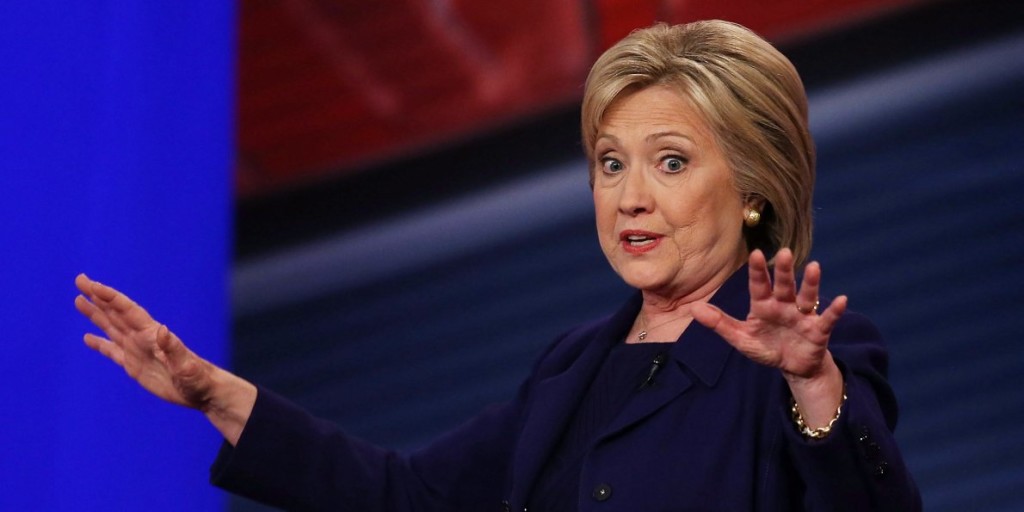
(Second of three parts) Political parties have held conventions in America since 1824. Many aspects of the convention have changed little in almost two centuries. This year, because the Summer Olympics are being held in August, both major parties will conduct their convention in July, with Republicans going first in Cleveland and Democrats following in Philadelphia. The first televised convention took place in 1940 when New York City’s NBC affiliate broadcast the Republican convention in Philadelphia. The other major networks quickly joined in and provided gavel-to-gavel coverage. As John Chancellor of NBC noted in 1972, “convention coverage is the most important thing we do. The conventions are not just political theater, but really serious stuff.” That attitude changed by 2004, when all the major networks cut back their coverage to several hours at night. As early as 1996, the networks were complaining that little of substance takes place. Ted Koppel, host of ABC’s Nightline, announced in 1996 that he was going home because the Republican Convention “is more of an infomercial than a news event.” What changed? It is true that many of the conventions of the 1940s through the 1970s made for great television. Platform fights were common, sometimes leading to a walkout of delegates. Just as explosive were fights over rules changes and the city of delegates. What made for good television, made for bad election results for the parties. They did not want to project an image of a divided party to the American electorate. Both parties instituted rules that made conventions less dramatic. The party image improved, but television now found conventions bland. During the first two days of the convention, the delegates decide on credentials, rules and the party platform. The credentials process determines the seating of state delegations and resolves any challenges to their legitimacy. The major credentials challenge in modern political history took place at the 1964 Democratic Convention. Two delegations from Mississippi both claimed to be the legitimate one. One delegation was the traditional, all-white Democratic delegation. No blacks were members or even allowed to participate in the selection of delegates. The other delegation came from the Mississippi Freedom Democratic Party (MFDP), which was open to both whites and blacks. The MFDP argued that its members should be seated because the party was open to all races, supported the party platform and backed the election of Lyndon Johnson. Many in the all-white delegation opposed the platform and its civil rights plank, and many supported Republican Barry Goldwater for president. Johnson selected his Vice President, Hubert Humphrey, to negotiate a solution. Humphrey’s solution was to seat the all-white delegation and several members of the MFDP. At all future Democratic conventions, race couldn’t be a factor in selecting delegates. Like most compromises, neither side was pleased. Platforms have often produced divided conventions. At the 1948 Democratic Convention in Philadelphia, the delegates narrowly approved a stronger civil rights plank introduced by Minneapolis Mayor Hubert Humphrey. Southern Democrats walked out and met several weeks later in Alabama and selected South Carolina Gov. Strom Thurmond to lead the Dixiecrats. Democrats feared that the split would cause Harry Truman to lose to Republican New York Gov. Thomas Dewey, but Truman won by a slim margin. The 1964 Republican platform led to a split between the moderate and conservative wings of the party. When the Goldwater forces defeated a moderate civil-rights plank by a 2-1 margin, it was clear that the Republican Party had moved to the right. Disputes over party rules have also led to disastrous conventions. In 1968, there were only 15 party primaries for the Democrats. Party committees or party leaders chose most delegates. The party leaders selected Humphrey and not the anti-war candidate Eugene McCarthy. In response to the 1968 fiasco in Chicago, the Democrats formed the McGovern-Fraser Committee to revise convention rules. The committee recommended that in the future, most delegates must be selected in primaries or caucuses, and that the delegates had to mirror the population of the state they represented. McGovern would be the Democratic presidential nominee in 1972. Some found it more than coincidental that the person who wrote the rules changes became the next nominee. Many Democrats considered McGovern too radical to win, and “ABM” committees (Anybody but McGovern) sprang up to oppose him. His opponents tried to stop McGovern by denying him all of California’s delegates that he won in a winner-take-all primary. The effort failed, but in retaliation, McGovern forces challenged Mayor Richard Daley‘s Chicago delegation as not meeting the diversity requirements. Daley and the other 58 members of the Chicago delegation were thrown out of the convention and replaced by a diverse slate elected by no one. For probably the first time in his life, Chicago Sun-Times journalist Mike Royko supported Daley. Royko said the new delegates contained only one Italian and three Poles. “Your reforms,” wrote Royko, “have disenfranchised Chicago’s white ethnic Democrats, which is a strange reform.” After McGovern lost 49 of the 50 states to Richard Nixon, the Democrats were back in the reform mode. This time, they created over 700 “super-delegates” who were party officials and elected Democrats who would be guaranteed seats at the convention and help to select the most “winnable” Democrat. If Hillary Clinton wins the Democratic nomination because she has the overwhelming support of super-delegates, look for Democrats to once again reform their rules. Republicans would never do that. They are still following the rules their grandparents made. (Tomorrow: Donald Trump needs 498 more delegates to avoid contested convention.) *** Darryl Paulson is Emeritus Professor of Government at USF St. Petersburg. He can be reached at darryl.paulson@gmail.com.
Donald Trump scrambles to address delegate fight
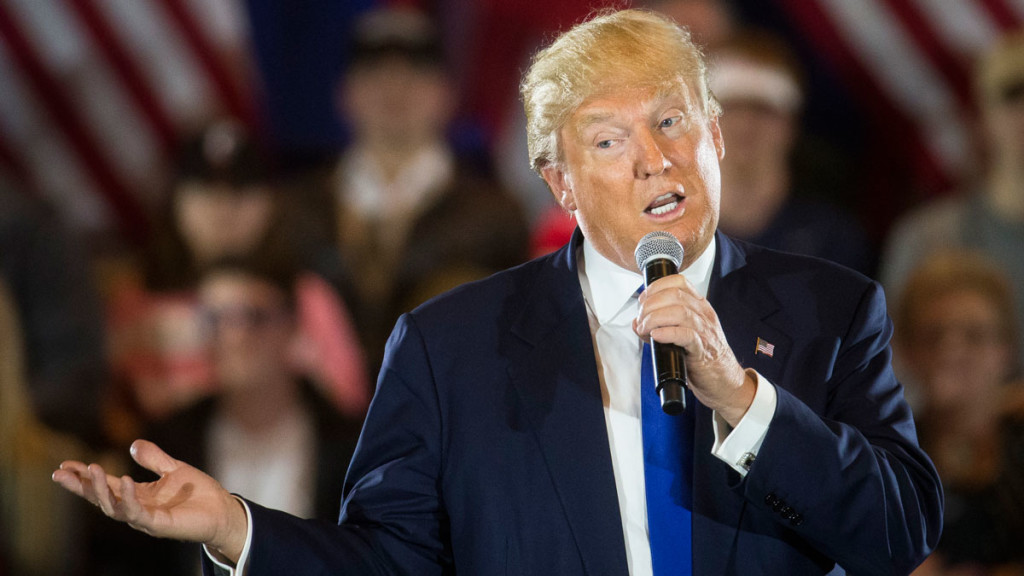
He is the Republican Party’s undisputed front-runner, yet Donald Trump‘s White House aspirations may now depend on a messy fight for delegates he is only now scrambling to address. Trump’s campaign on Monday vowed to pursue legal action against the Republican National Committee to protect his recent victory in Louisiana, one of many states that feature complicated rules allowing campaigns to influence the presidential nominating process weeks or months after their votes have been counted. A similar process plays out nationwide every four years. Yet Trump’s outsider candidacy is so far driven largely by media coverage instead of the on-the-ground organization that rival Ted Cruz boasts. Now, Trump must play catch up — especially in the chase for delegates previously bound to former candidate Marco Rubio. “A lot of Trump’s support has been through earned media, so you haven’t had the need to really focus on that aspect of it,” said Jason Osborne, one of several former Ben Carson aides tapped in recent weeks to undertake Trump’s delegate outreach. “But that doesn’t mean you can’t get up to speed pretty quickly on it.” Indeed, Trump’s campaign on Tuesday will announce plans to open a Washington, D.C. office to run its delegate operation and congressional relations team, said campaign senior adviser Barry Bennett. In addition to the new space, Bennett said Trump has hired a veteran political operative to serve as the campaign’s convention manager. Paul Manafort, a seasoned Washington hand with decades of convention experience, will oversee the campaign’s “entire convention presence” including a potential contested convention, said Bennett. The move marks a major escalation in Trump’s willingness to play by party rules and build alliances in a political system he has so far shunned. It comes as Trump faces a Republican nomination battle that will almost certainly extend until the final day of primary voting on June 7 — or even to the party’s July national convention in Cleveland — if he fails to secure the delegate majority needed to become the presumptive nominee. In a campaign season so far defined by extraordinary insults and extreme rhetoric, the 2016 Republican presidential nomination fight could ultimately be decided by lawmakers, party activists and lawyers. Selecting the people who will be delegates at the national convention is a tedious process governed by rules that vary from state to state. In some states, like New Hampshire and California, the candidates submit slates of delegates — actual people who would presumably be loyal at a contested convention. In states like Louisiana, Iowa, Nevada and many others, delegates are selected at state and congressional district conventions and caucuses. To prevent mischief, the national party adopted a rule requiring delegates to vote, on the first ballot at the convention, to vote for the candidate who won them. “Honestly, I’m new to the operation. It’s obviously not perfect,” said Trump aide Ed Brookover, who was Carson’s former campaign manager. Brookover vowed Trump would have “an active presence” at every one of the upcoming lower-profile conventions and caucuses where delegates are selected. That includes this weekend’s state convention in North Dakota, where 25 delegates will be selected. All of them — in addition to the state’s three national committee members — will be free to support the candidate of their choosing at the GOP’s national July convention. Carson himself will appear in North Dakota on Trump’s behalf, Brookover said, as part of outreach efforts that include hospitality suites for delegates, campaign surrogates, parliamentarians and support staff for all upcoming contests. It takes 1,237 delegates to win the Republican nomination. Trump, with 739 delegates, is the only candidate with a realistic path to clinching the nomination by the end of the primaries on June 7. Rubio’s recent exit gave Trump’s rivals an opening to help make his path harder. Most delegates are free to support the candidate of their choice if their preferred candidate drops out. The Florida senator suspended his campaign earlier in the month after accumulating 166 delegates — a trove that Cruz’s campaign is aggressively courting. A dispute in Louisiana highlights Trump’s challenge. Rubio won five delegates in Louisiana’s March 5 primary, people who became free agents after he suspended his campaign. At Louisiana’s subsequent GOP convention, Cruz’s campaign secured all of Rubio’s delegates, as well as five others who were uncommitted. As a result, Cruz could end up with more delegates from Louisiana, even though Trump narrowly won the state’s popular vote. Bennett said the campaign would formally challenge the certification of Louisiana’s delegates during the Republican National Committee’s summer meeting. Trump is most upset, he said, that Cruz’s campaign pushed its Louisiana supporters onto the national convention’s powerful rules committee. Bennett predicted Trump would accumulate 1,460 delegates before the convention, making legal action unnecessary. That’s more than enough to claim the nomination outright even if Cruz successfully peels away some of his support in the coming months. Louisiana GOP executive director Jason Dore, one of the uncommitted delegates for the state, acknowledged Cruz has had a stronger ground game in Louisiana than Trump and has worked on attracting delegates since the beginning. As for the threat of a lawsuit, Dore said: “I don’t know who he’d be suing because these 10 delegates are free to support whoever they want under the rules. The party or I can’t force them to vote any way.” He said the delegate allocation formulas were crafted in compliance with the RNC. “We consulted with the RNC and followed their advice,” Dore said. Republished with permission of the Associated Press.
Alabama ranked 3rd most federally dependent state

With the tax deadline less than a month away, the personal finance website WalletHub followed up on its report on the States with the Highest & Lowest Tax Rates with an in-depth analysis of 2016’s Most & Least Federally Dependent States to determine how dependent states with the lowest tax rates are compared with those paying the highest. The results? For a state that pride’s itself on conservative, small-government values Alabama and Uncle Sam are a lot closer than many Alabamians would imagine. According to the analysis, Alabama ranked as the 3rd most federally dependent state in the nation, relying heavily on Uncle Sam to support the state’s finances. Federal Dependency of Alabama (1=Most, 25=Avg.): 3rd: Return on Taxes Paid to the Federal Government 9th: Federal Funding as a Percentage of State Revenue 9th: Share of Federal Jobs While not the results many would expect from a Red State — one that voted Republican in the 2012 presidential election — with an average dependency ranking of 17.13, WalletHub found Red States are altogether more reliant on federal funding than Blue States, which ranked 33.23 on average. The revelation of federal dependence where bold, efficient stewardship was once thought to preside, begs the question: Are Alabamians being taxed appropriately? With an $85 Medicaid shortfall in the General Fund budget and a special session on the horizon, it’s a question the Alabama Legislature will soon face. As for how neighboring states fared, Alabama was in good company — Mississippi ranked the most federally dependent state in the nation, Louisiana 4th and Tennessee 5th. Here’s how Alabama compares to the rest of the country: Source: WalletHub In order to identify which states most and least depend on federal support, WalletHub’s analysts compared the 50 states across across across two key dimensions, namely “State Residents Dependency” and “State Government Dependency” looking at 2013-2014 data collected from the Internal Revenue Service, U.S. Census Bureau, USAspending.gov, Bureau of Labor Statistics and Governing.com.


